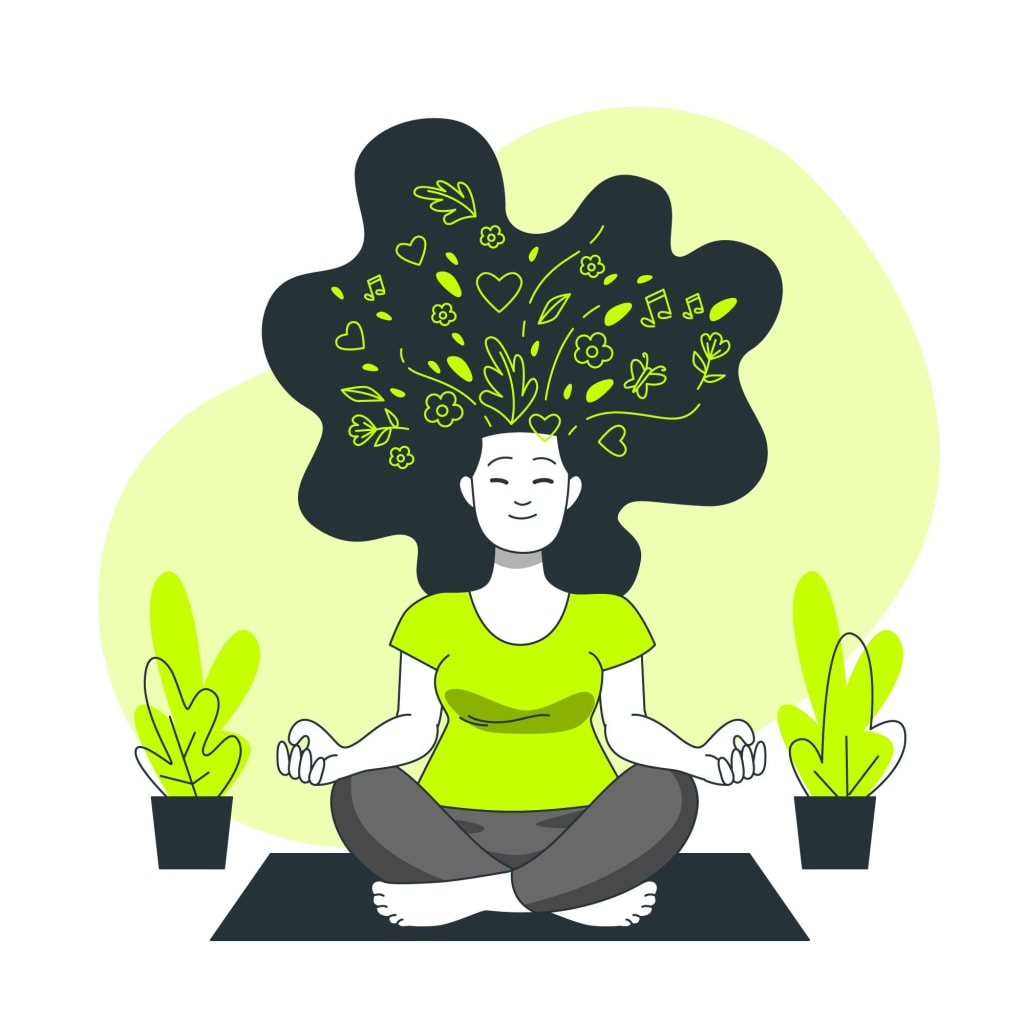
Happiness is a state of mind that we all aspire to achieve, yet it can often feel elusive. While some people seem to be naturally happy, others struggle to find joy and contentment in their lives. But what if happiness isn't just a matter of luck or circumstance? What if there are specific psychological factors that contribute to our happiness? In this blog, we'll explore the psychology of happiness and provide tips for cultivating more joy and fulfillment in your life.
1.Mindset Matters
One of the most important factors in the psychology of happiness is our mindset. The way we think about ourselves and the world around us can have a significant impact on our happiness levels. Research has shown that people who have a growth mindset - a belief that they can develop their abilities and skills through hard work and dedication - are more likely to be happy than those with a fixed mindset who believe that their abilities are innate and unchangeable.
To cultivate a growth mindset, focus on your progress rather than your limitations. Celebrate your achievements, no matter how small, and view mistakes and failures as opportunities to learn and grow.
2.Gratitude
Gratitude is another key factor in the psychology of happiness. When we focus on the things we're grateful for, we shift our attention away from negative thoughts and emotions and cultivate a more positive outlook. Research has shown that practicing gratitude can increase happiness, reduce stress and anxiety, and improve overall well-being.
To cultivate gratitude, take time each day to reflect on the things you're thankful for. This could be as simple as keeping a gratitude journal or taking a few minutes to appreciate nature or a beautiful sunset.
3.Social Connections
Humans are social creatures, and our relationships with others play a significant role in our happiness. Research has shown that having strong social connections can improve mental health, boost self-esteem, and increase life satisfaction.
To cultivate social connections, focus on building meaningful relationships with others. This could be through spending time with friends and family, joining a social group or club, or volunteering in your community.
4.Purpose and Meaning
Having a sense of purpose and meaning in life is also essential for happiness. When we feel like our lives have meaning, we're more likely to feel fulfilled and satisfied. This could be through pursuing a career or hobby that aligns with our values or making a positive impact in our communities.
To cultivate purpose and meaning, take time to reflect on what's important to you and what gives your life meaning. Set goals that align with your values and work towards them consistently.
5.Self-Care
Finally, self-care is a crucial component of the psychology of happiness. When we prioritize our physical and mental well-being, we're better equipped to deal with stress and challenges and enjoy life more fully.
To cultivate self-care, prioritize activities that promote your well-being, such as exercise, healthy eating, meditation, or spending time in nature. Make time for activities that bring you joy and help you relax.
6.Personal Growth and Learning
Continuing to learn and grow throughout life can also contribute to happiness. When we engage in activities that challenge us and help us develop new skills and knowledge, we feel a sense of accomplishment and satisfaction. This could be through pursuing a degree or certification, learning a new language or skill, or engaging in creative pursuits.
7.Resilience
Resilience is the ability to bounce back from setbacks and challenges. While it's impossible to avoid difficult times in life, developing resilience can help us cope better with stress and adversity. Research has shown that people who are more resilient tend to be happier and more satisfied with their lives.
To cultivate resilience, focus on building strong coping mechanisms and developing a growth mindset. This could involve practicing mindfulness or meditation, seeking support from friends and family during difficult times, or engaging in activities that help you feel grounded and centered.
8.Gratitude and Kindness
Practicing gratitude and kindness towards others can also boost happiness levels. When we express gratitude towards others or engage in acts of kindness, we feel a sense of connection and purpose that can contribute to our overall well-being.
To cultivate gratitude and kindness, look for opportunities to express appreciation towards others, whether it's through a thank-you note or a kind gesture. You can also engage in random acts of kindness, such as paying for someone's coffee or volunteering in your community.
In conclusion, the psychology of happiness is a complex but essential topic for anyone seeking to cultivate more joy and fulfillment in their lives. By focusing on mindset, gratitude, social connections, purpose and meaning, and self-care, you can increase your happiness levels and enjoy a more meaningful and fulfilling life. Remember that happiness is a journey, not a destination, so be patient and persistent in your efforts to cultivate more joy and positivity in your life.
About the Creator
aly
A blogger, who can also try to write humorous stories and jokes , ghost and spooky tales and more.






Comments
There are no comments for this story
Be the first to respond and start the conversation.